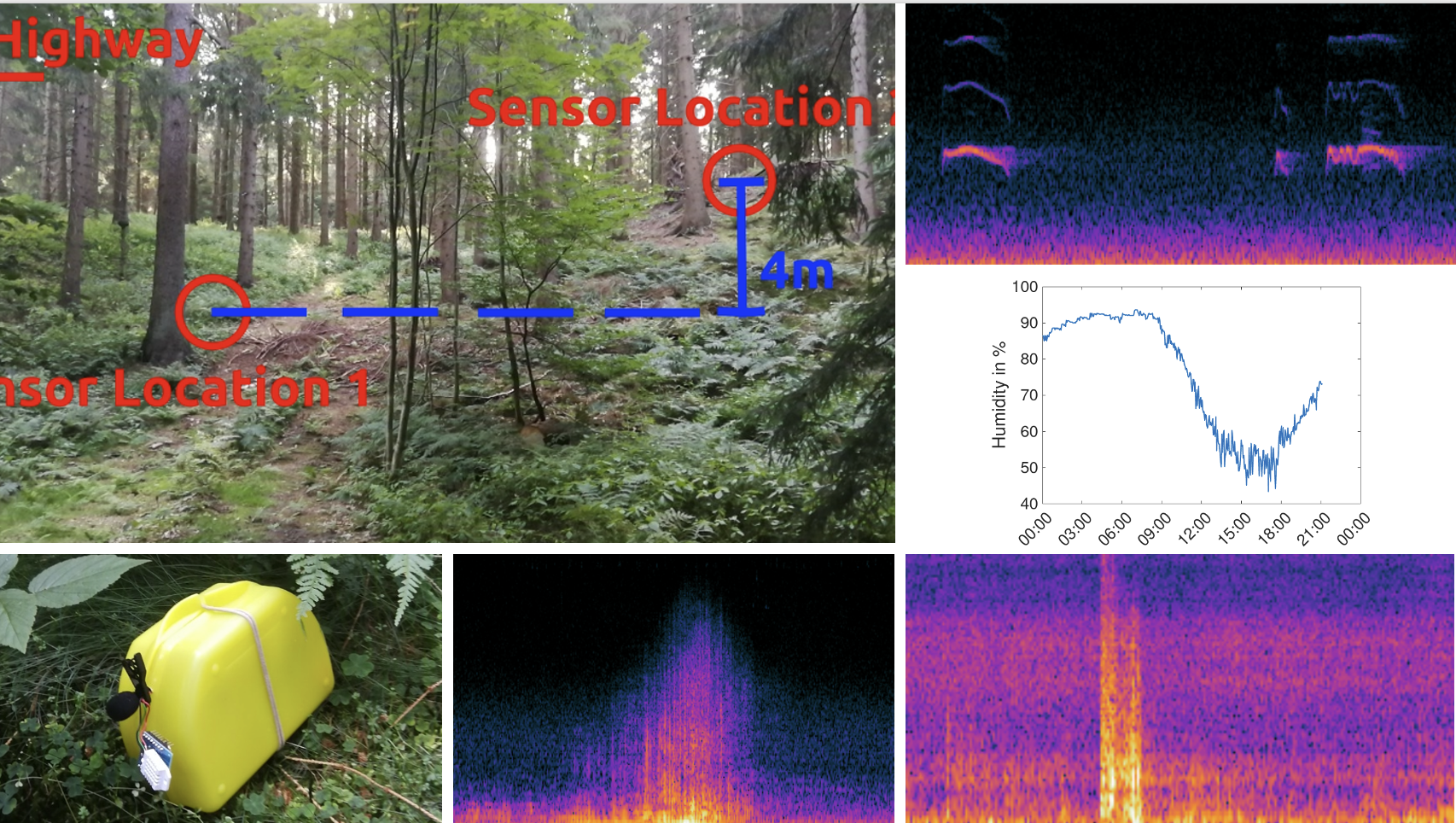Towards a resource efficient system for ecoacoustic recording
- Typ der Arbeit: Bachelorarbeit
- Status der Arbeit: abgeschlossen
- Betreuer: Ulf Kulau
- Bearbeiter: Jan Lueken
- Ende der Arbeit: 23. Sep 2022
Accelerating global changes to climate and ecosystems urgently demand methods with which the health of ecosystems can be monitored accurately and in real time. In this context, an ecosystem’s soundscape has proven to be a promising, non-invasive source of data for a broad variety of parameters regarding its health and condition. Advancements in sensor technology in the last decade have further stimulated interest in the potential of acoustic monitoring of ecosystems in the contribution of global-scale environment data. However, the amount of data involved in large-scale audio recording pose an entirely new set of technical challenges. Wireless transmission is more energy demanding for larger volumes of data. As a result, the effective extraction of information is required not only for the ecological application but also for the technology that enables it. To circumvent these issues, the analysis of ecosystem audio data and its computations must be brought close to the acoustic sensor. This thesis explores methods of effective data size reduction of ecoacoustic audio samples, comparing the effects of low-pass filters to decimation post-recording. For this, a custom audio recording device using a Raspberry Pi is built and equipped with an environment sensor. Thereby, first steps towards a resource efficient system for ecoacoustic recording are taken.

Tasks
- Introduction to the topic and comparison with related work
- Hardware Design & Assembly of a functional prototype for ecoacoustic recording
- Evaluation and measurement campaign for the collection of ecoacoustic signals
- Initial review and evaluation of the collected data and derivation of procedures to increase the efficiency of the measurement process


